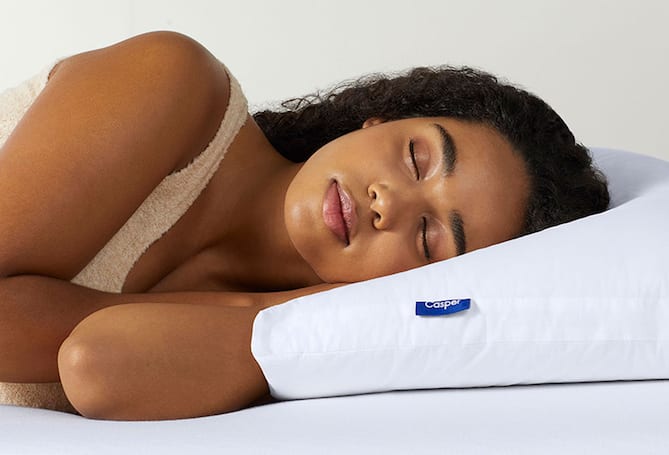Sleep Hygiene Tips: Your Guide to Healthy Sleep

carousel
Getting a good night’s sleep is crucial for your health. Without the necessary amount of rest, your body can experience a wide variety of challenging or harmful side effects. But in today’s busy world, how can you prioritize your body’s need for rest? One of the answers is practicing proper sleep hygiene. Scientists have discovered that certain sleep-related habits can substantially affect the quantity and quality of the sleep you experience.
So, what are these habits, and how can you incorporate them into your life? Read on for more information and helpful sleep hygiene tips.
What is sleep hygiene?
How to improve sleep hygiene.
The first step to improving sleep hygiene is taking an honest assessment of your current situation. If you’re experiencing sleep disturbances, including difficulty falling asleep, waking up frequently throughout the night or feeling unrested in the morning, you may have inadequate sleep hygiene. Studies show symptoms of poor sleep hygiene and sleep disruption can range from general fatigue to more complicated symptoms, like increased stress responsivity, pain, adverse emotional effects and issues with cognitive function.See Disclosure 2
Fortunately, there are many sleep solutions for developing good sleep hygiene habits.
Set a consistent sleep schedule.
Regulate your screen time.
Lead an active lifestyle.
Monitor your caffeine consumption.
Create a relaxing sleep environment.
Sleep hygiene and your body.
References.
1. “Brain Basics: Understanding Sleep.” National Institute of Neurological Disorders and Stroke, National Institutes of Health (NIH). April 1, 2022. https://www.bestbuy.com/discover-learn/sleep-hygiene-tips-your-guide-to-healthy-sleep/pcmcat1657130930241.
2. Medic, Goran, Micheline Wille and Michiel Hemels. “Short- and Long-Term Health Consequences of Sleep Disruption.” Nature and Science of Sleep. April 18, 2017. https://www.dovepress.com/short--and-long-term-health-consequences-of-sleep-disruption-peer-reviewed-fulltext-article-NSS.
3. Duncan, Mitch J., Christopher E. Kline, Amanda L. Rebar, Corneel Vandelanotte and Camille E Short. “Greater Bed- And Wake-Time Variability Is Associated with Less Healthy Lifestyle Behaviors: A Cross-Sectional Study.” Journal of Public Health. October 20, 2015. https://link.springer.com/article/10.1007/s10389-015-0693-4.
4. Chang, Anne-Marie, Daniel Aeschbach, Jeanne F. Duffy and Charles A. Czeisler. “Evening Use of Light-Emitting eReaders Negatively Affects Sleep, Circadian Timing, and Next-Morning Alertness.” National Academy of Sciences. December 22, 2014. https://www.pnas.org/doi/full/10.1073/pnas.1418490112.
5. Banno, Masahiro, Yudai Harada, Masashi Taniguchi, Ryo Tobita, Hiraku Tsujimoto, Yasushi Tsujimoto, Yuki Kataoka and Akiko Noda. “Exercise Can Improve Sleep Quality: A Systematic Review and Meta-Analysis.” PeerJ, PeerJ, Inc. July 11, 2018. https://peerj.com/articles/5172/.
6. Danielle Pacheco, “The Best Exercises for Sleep.” The Sleep Foundation, Sleep Doctor Holdings, LLC. May 6, 2022. https://www.sleepfoundation.org/physical-activity/best-exercises-sleep.
7. Choi, Ji Ho, Bora Lee, Jae Yong Lee, Chang-Hoon Kim, Bumhee Park, Dong Young Kim, Hyun Jun Kim and Do-Yang Park. “Relationship between Sleep Duration, Sun Exposure, and Serum 25-Hydroxyvitamin D Status: A Cross-sectional Study.” Scientific Reports. March 6, 2020. https://www.nature.com/articles/s41598-020-61061-8.
8. Drake, Chrisopher, Timothy Roehrs, John Shambroom and Thomas Roth. “Caffeine Effects on Sleep Taken 0, 3, or 6 Hours before Going to Bed.” Journal of Clinical Sleep Medicine. November 15, 2013. https://jcsm.aasm.org/doi/10.5664/jcsm.3170.
9. Ebben, Matthew R., Peter Yan and Ana C. Krieger. “The Effects of White Noise on Sleep and Duration in Individuals Living in a High Noise Environment in New York City.” Sleep Medicine. July 2021. https://www.sciencedirect.com/science/article/abs/pii/S1389945721002021?via%3Dihub.
Additional information:
These statements and any information contained herein are intended for educational purposes only and are not meant to substitute for medical care or to prescribe treatment for any specific health condition. Carefully review product labels for instructions and important safety information and consider consulting with a health care professional regarding your use of health and wellness products.